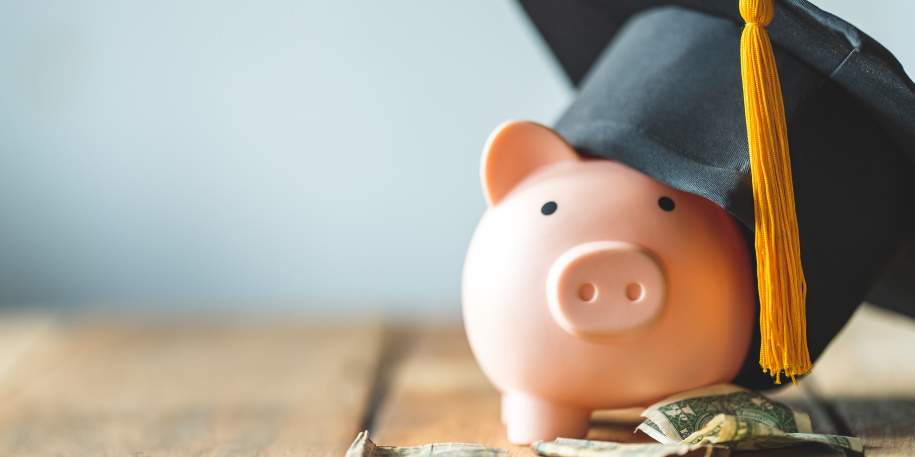Speak With Denver Bankruptcy Lawyer The Wink Law Firm To Learn Which of Your Debts Can Be Discharged
Many people graduate college with significant amounts of student loans to repay. And some find it hard to keep up with payments. Perhaps they simply don’t make enough money to pay back the loans or other big life expenses have gotten in the way.
If you’re not careful, student loan interest can snowball, and you can find yourself owing a huge amount of money. It can get worse and worse until you can’t see a smart way out.
If you’re dealing with overwhelming debt, it may be time to consider filing for bankruptcy. The first step is meeting with a skilled bankruptcy attorney, such as The Wink Law Firm of Denver, Colorado. Bankruptcy, after all, can wipe out a lot of your debts and help you get a fresh financial start.
But does bankruptcy cover student loans? After all, bankruptcy doesn’t erase all debts.
Can Bankruptcy Discharge Student Loans?
Bankruptcy on its own does not wipe out student loans.
Bankruptcy can erase many unsecured debts, such as medical bills, back rent, credit card bills, and others. But it typically does not erase student loans as well as alimony payments and child support and certain types of taxes. In most cases, you’ll simply be required to still pay those.
However, another way to look at it: When your unsecured debts have been wiped out, that should free up more money in the future to be able to pay off student loans and the other secured debts, the things you must still pay.
To learn more about which debts of yours may be erased by filing for bankruptcy, speak with the Denver bankruptcy law firm The Wink Law Firm. They’ll review your case and help you learn what to expect.
Filing an Adversary Proceeding to Erase Student Loan Debt
There is one way to possibly get your student loans wiped out in a bankruptcy: filing an adversary proceeding. This typically takes place after your bankruptcy case has completed and is a separate filing from your bankruptcy.
In short, if you can prove to the Bankruptcy court that continuing to pay your student loans would lead to undue hardship – as in, an inability to maintain even a minimal standard of living – they may discharge your student loan debt.
However, it is very, very hard to succeed in getting your student loan debt erased. The burden is heavy on you to prove undue hardship.
Courts vary in what they consider undue hardship. Often they’ll look at your current financial situation, how it may look in the future based on various factors, and whether you’ve made a good faith effort to pay off student loans. If your financial situation is looking pretty good (now or in the future) and you’ve just sloughed off paying for years (or instead put a lot of money toward unnecessary things), then that won’t look good to the courts.
Some common things courts may consider as you having undue hardship:
- Your income is below the federal poverty line. There also is no sign that it’ll improve.
- Your only income is disability checks.
- You have a mental or physical illness that is debilitating.
- You’re raising a child with a serious illness or injury that requires constant care.
- You’re supporting a spouse with a permanent injury or disability.
- You have to use public assistance, or you’re dependent on a member of your family.
In all these examples, your financial situation must be unlikely to improve in the future to be considered as having undue hardship. You also must only be incurring necessary expenses (food, rent, etc.), not spending your money on nice vacations and fancy restaurants and other things that may be considered luxuries.
So, for many people, it’s very hard to get student loans discharged in a bankruptcy case. However, student loans continue to be a big topic in the news and government, so this is an area that may change in the future.
Can You Lower Student Loan Payments With Chapter 13 Bankruptcy?
While Chapter 7 bankruptcy wipes out most debts, Chapter 13 bankruptcy involves you paying what you can afford in a 3- to 5-year repayment plan. This can mean lower monthly payments than otherwise would be required for your student loans.
And your student loans cannot collect from you during the 3 to 5 year plan. While your student loans are not discharged in bankruptcy and you will owe them after your bankruptcy, you may be able to strengthen your financial situation during this time so you are better able to deal with your student loans after bankruptcy. Because of this, Chapter 13 bankruptcy can be a good strategy for managing student loans.
To best understand your financial situation in terms of how bankruptcy can help you, it’s best to speak with experienced bankruptcy lawyers, such as The Wink Law Firm, who serve the greater Denver area.
Get Much-Needed Debt Relief by Filing for Bankruptcy
If you’re dealing with overwhelming debt, it may be time to consider filing for bankruptcy. Unless you can prove undue hardship, you’ll likely still be required to pay off your student loan debt. However, because other debts are being wiped out, it may make it easier to pay back those student loans.
If you’re considering bankruptcy, it’s crucial you speak with a skilled and trusted Denver bankruptcy law firm. Call The Wink Law Firm today at (720) 523-0620 or contact us online. The initial consultation is completely free.

